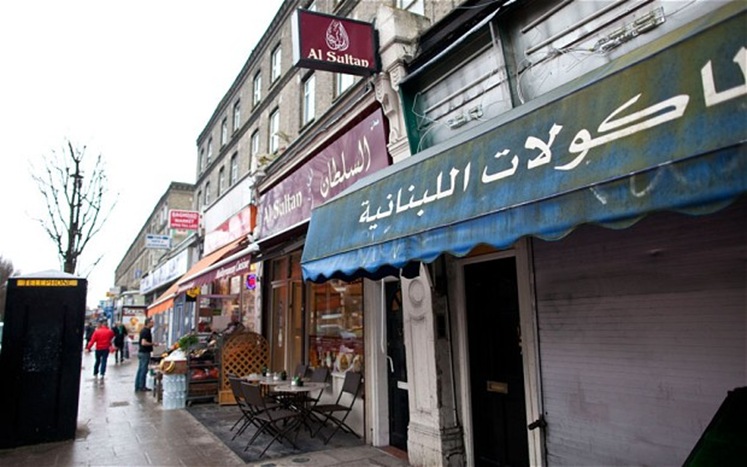Telegraph
December 31, 2013

As new figures show ‘white flight’ from cities is rising, one Londoner writes a provocative personal piece about how immigration has drastically changed the borough where she has lived for 17 years.
“When you go swimming, it’s much healthier to keep your whole body completely covered, you know.” The Muslim lady behind the counter in my local pharmacy has recently started giving me advice like this. It’s kindly meant and I’m always glad to hear her views because she is one of the few people in west London where I live who talks to me.
The streets around Acton, which has been my home since 1996, have taken on a new identity. Most of the shops are now owned by Muslims and even the fish and chip shop and Indian takeaway are Halal. It seems that almost overnight it’s changed from Acton Vale into Acton Veil.
Of the 8.17 million people in London, one million are Muslim, with the majority of them young families. That is not, in reality, a great number. But because so many Muslims increasingly insist on emphasising their separateness, it feels as if they have taken over; my female neighbours flap past in full niqab, some so heavily veiled that I can’t see their eyes. I’ve made an effort to communicate by smiling deliberately at the ones I thought I was seeing out and about regularly, but this didn’t lead to conversation because they never look me in the face.
I recently went to the plainly named “Curtain Shop” and asked if they would put some up for me. Inside were a lot of elderly Muslim men. I was told that they don’t do that kind of work, and was back on the pavement within a few moments. I felt sure I had suffered discrimination and was bewildered as I had been there previously when the Muslim owners had been very friendly. Things have changed. I am living in a place where I am a stranger.
I was brought up in a village in Staffordshire, and although I have been in London for a quarter of a century I have kept the habit of chatting to shopkeepers and neighbours, despite it not being the done thing in metropolitan life. Nowadays, though, most of the tills in my local shops are manned by young Muslim men who mutter into their mobiles as they are serving. They have no interest in talking to me and rarely meet my gaze. I find this situation dismal. I miss banter, the hail fellow, well met chat about the weather, or what was on TV last night.
More worryingly, I feel that public spaces are becoming contested. One food store has recently installed a sign banning alcohol on the premises. Fair enough. But it also says: “No alcohol allowed on the streets near this shop.” I am no fan of street drinking, and rowdy behaviour and loutish individuals are an aspect of modern British ”culture’’ I hate. But I feel uneasy that this shopkeeper wants to control the streets outside his shop. I asked him what he meant by his notice but he just smiled at me wistfully.
Perhaps he and his fellow Muslims want to turn the area into another Tower Hamlets, the east London borough where ”suggestive’’ advertising is banned and last year a woman was refused a job in a pharmacy because she wasn’t veiled.
On the other hand, maybe I should be grateful. At least in Acton there is just a sign in a shop. Since the start of the year there have been several reports from around London of a more aggressive approach. Television news footage last week showed incidents filmed on a mobile phone on a Saturday night, in the borough of Waltham Forest, of men shouting “This is a Muslim area” at white Britons.
The video commentary stated: “From women walking the street dressed like complete naked animals with no self-respect, to drunk people carrying alcohol, we try our best to capture and forbid it all.”
Another scene showed hooded youths forcing a man to drop his can of lager, telling him they were the “Muslim patrol” and that alcohol is a “forbidden evil”. The gang then approached a group of white girls enjoying a good night out, telling them to “forbid themselves from dressing like this and exposing themselves outside the mosque”.
